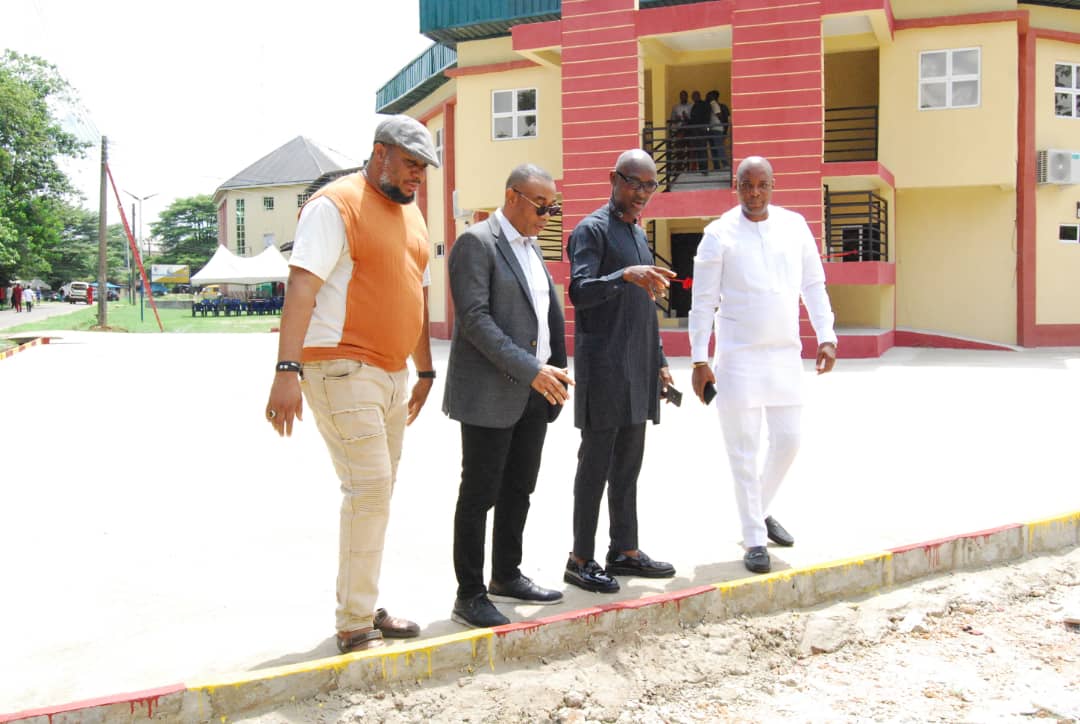The Abia State government is on the verge of unveiling a transformative Urban Mass Transit Initiative, a strategic move aimed at overhauling and modernizing the state’s public transportation system. This initiative is expected to provide safer, more efficient, and cost-effective mobility solutions for residents, particularly in the bustling cities of Umuahia and Aba.
In preparation for the launch, the Senior Special Assistant to the Governor on Transport, Hon. Obioma Reuben Nwaogbe, Ph.D, alongside a high-powered team, including the Managing Director of Coscharis Mobility, Mr. Christian Chibundu, has embarked on an extensive one-week transport survey. This survey is meticulously designed to assess and analyze the existing transportation infrastructure and identify areas for strategic improvement.

The transport survey focuses on several critical aspects that will shape the design and implementation of the Urban Mass Transit System:
1. Route Mapping for Efficiency: A detailed study is being conducted to identify viable and high-demand routes to ensure the efficient movement of commuters. This exercise will optimize the routing network, reducing congestion and improving travel time.
2. Establishment of Charging Points and Parking Slots: The survey is also identifying suitable locations for charging stations and parking facilities, ensuring seamless operations, particularly as the government explores the use of modern eco-friendly vehicles.
3. Passenger Volume Assessment: A volumetric count of passengers is underway to evaluate the demand for public transport services across key routes. This data will aid in determining the appropriate number and capacity of vehicles required for efficient service delivery.
4. Public Transport User Feedback: Feedback is being gathered from public transport users to understand their experiences, challenges, and expectations. This information will be instrumental in shaping a responsive and user-friendly transit system.

The survey findings will directly influence the successful rollout of the Urban Mass Transit System, with the following objectives in mind:
– Enhancing Public Transportation Efficiency: The initiative aims to introduce a structured and well-managed transport system that eliminates inefficiencies and streamlines movement across the state.
– Improving Accessibility and Convenience: A key focus is to provide affordable, reliable, and comfortable transport options for Abians, ensuring accessibility for all, including the elderly and persons with disabilities.
– Aligning with Governor Alex Otti’s Vision for Transport Development: This initiative is in line with Governor Dr. Alex Chioma Otti’s broader urban transformation agenda, emphasizing sustainability and smart mobility.
As part of the transport assessment, the team visited Ogbonnaya Polytechnic, inspecting the designated parking slots and planned charging locations for electric vehicles. The delegation also met with the institution’s Rector, Dr. Okoro, Christopher Kalu, to fine-tune logistics and installation processes. This engagement underscores the government’s commitment to integrating academic and technical institutions in the state’s infrastructural development.

The success of this ambitious project relies on the expertise and collaboration of several critical stakeholders, including, Dr. Obioma Reuben Nwaogbe – SSA to the Governor on Transport, Mr. Christian Chigbundu– Managing Director, Coscharis Mobility, Mr. Chukwuma Azode (China) – State President, Cooperative Motor Union, Abia State and Other transport and urban development experts
The impending launch of the Abia Urban Mass Transit Initiative is set to revolutionize transportation in the state. With a solid data-driven approach, backed by comprehensive planning and stakeholder collaboration, Abia is poised to become a model for modernized urban mobility in Nigeria.
As the government finalizes preparations for the launch, residents can look forward to a transportation system that prioritizes efficiency, safety, and accessibility, marking a new era of progress and urban development in Abia State.

























